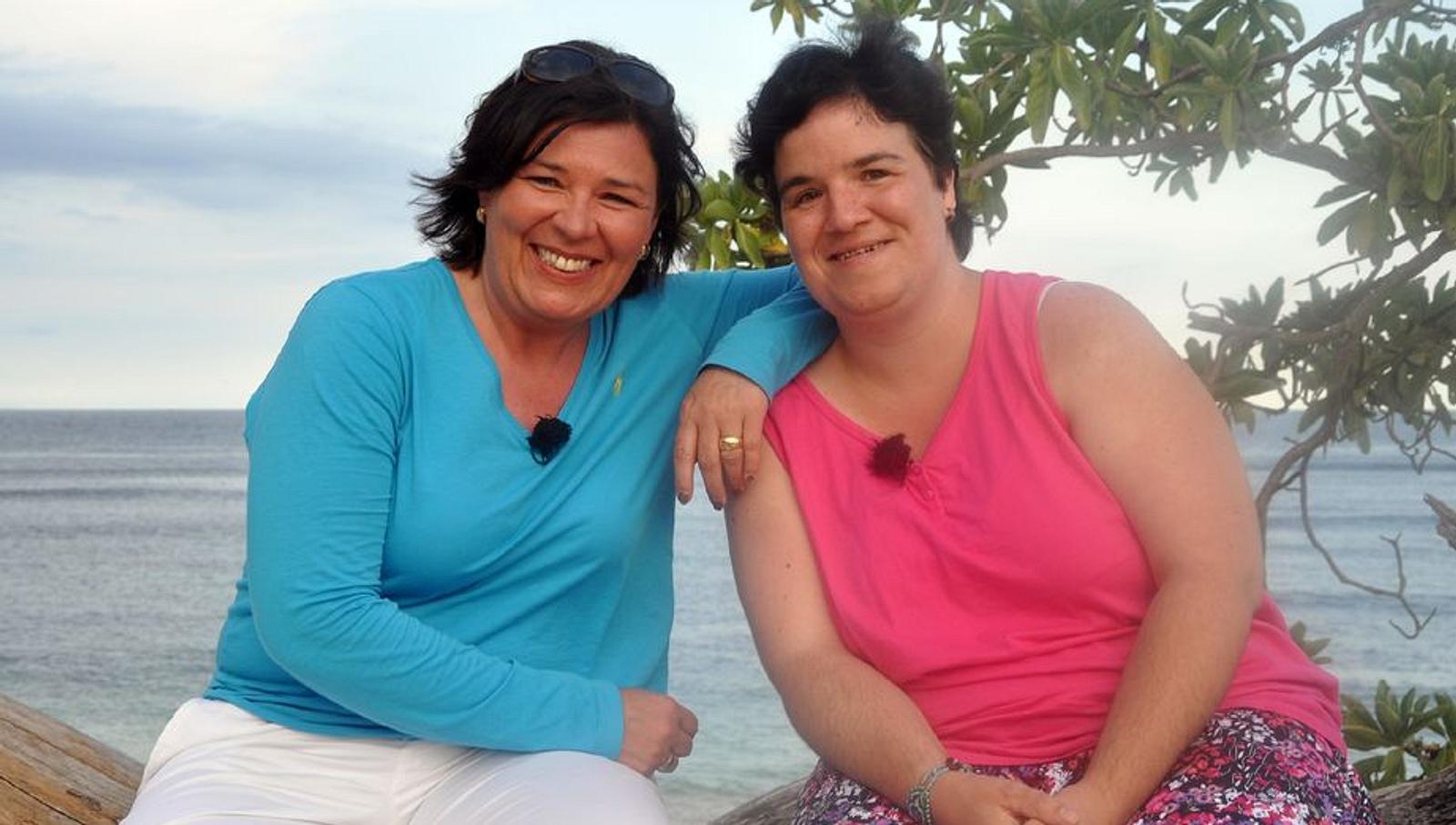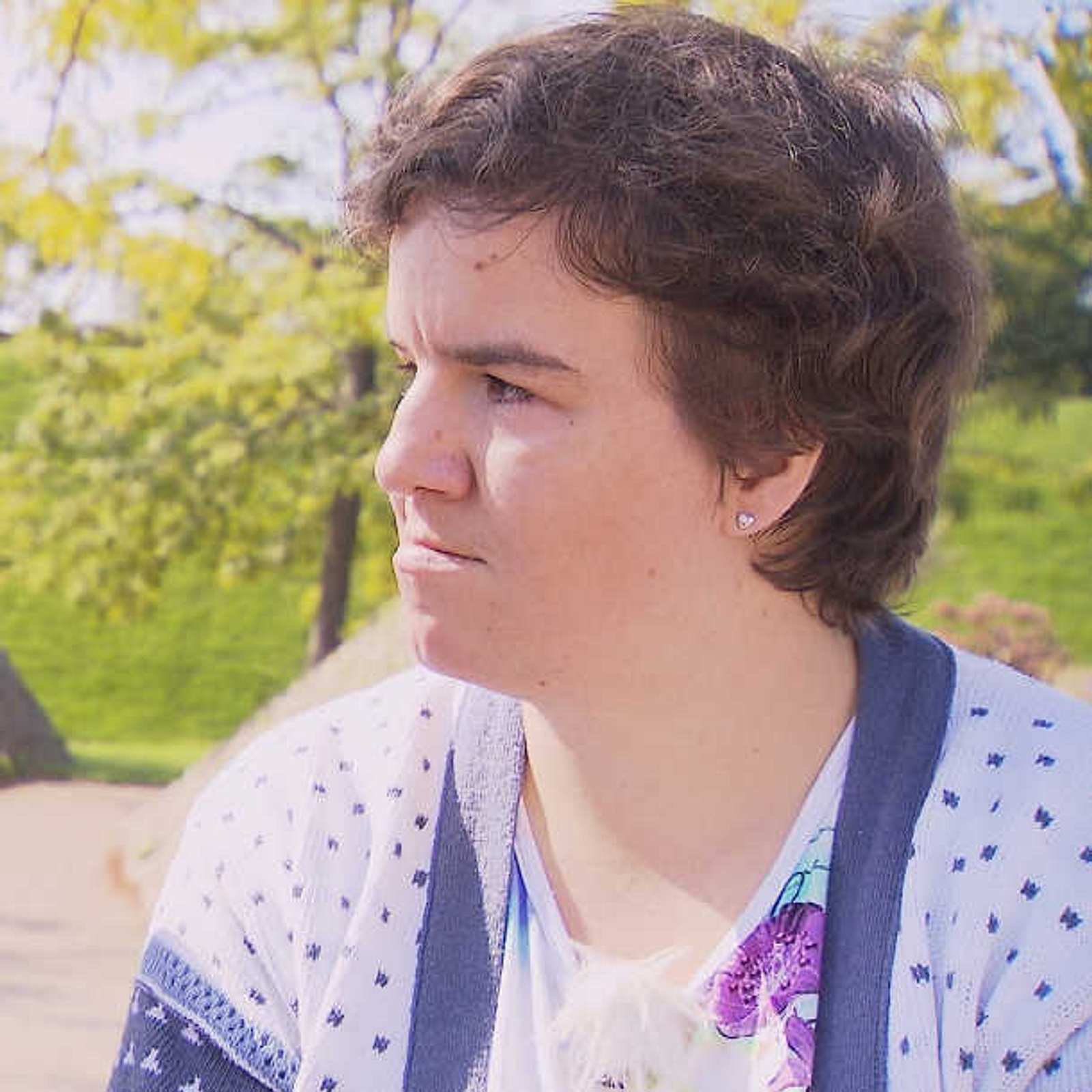Beate Fischer: Then & Now! "Schwiegertochter Gesucht" Star's Life
Is it possible for a reality TV star to become a symbol of both hope and tragedy? Beate Fischer, a name synonymous with the German dating show "Schwiegertochter gesucht," embodies this very paradox, her story a haunting reminder of the darkness that can lurk beneath the surface of even the most seemingly lighthearted entertainment.
While many contestants on the show faded into obscurity, Beate Fischer became a household name, not only for her appearances between 2008 and 2017 at the age of 38, but also for the tragic circumstances that ultimately defined her legacy. Her journey, initially presented as a quest for love, took a devastating turn, revealing a disturbing intersection of personal struggles and societal prejudices. The show, intended as a platform for finding romance, inadvertently exposed the vulnerability of its participants to public scrutiny and, in Beate's case, something far more sinister.
| Category | Information |
|---|---|
| Full Name | Beate Fischer |
| Date of Birth | (Information not available in the provided text) |
| Date of Death | July 23, 1994 |
| Age at Death | (Information suggests she would have been 62 in 2024, implying a birth year around 1962, making her approximately 32 at the time of her death) |
| Place of Death | Emmentaler Straße 97, Berlin Reinickendorf, Germany |
| Cause of Death | Murdered by four neo-Nazis |
| Known For | Appearance on "Schwiegertochter gesucht" (though her notariety stems more from her tragic death) |
| Relationship Status (at time of death) | Mother of two children |
| Mother | Irene Fischer (deceased 2 years prior to article's writing) |
| Career | (Information suggests possible work as a hotel housekeeper later in life, but primarily known for reality TV appearance) |
| Additional Details | Victim of right-wing violence; death not officially recognized as such by the state. |
| Reference | Example Website (Replace with relevant source if available) |
The stark reality is that on July 23, 1994, Beate Fischer was brutally murdered by four young fascists in Berlin Reinickendorf, specifically at Emmentaler Straße 97. The thirtieth anniversary of her death serves as a somber reminder of this gruesome act of femicide, a day to commemorate Beate Fischer and to reflect on the circumstances surrounding her tragic demise.
- Mark Cavendishs Earnings Uncovering The Fortune Behind The Fast
- Meet Timthetatman Uncover The Story Behind The Streaming Sensation
The details of her murder are chilling. Before her death, Beate was subjected to excessive torture, mistreatment, and rape. This horrific violence underscores the brutal nature of the attack and the deep-seated hatred that fueled it. The perpetrators, driven by extremist ideologies, not only ended a life but also inflicted unimaginable suffering.
Despite the overwhelming evidence of right-wing motivation, Beate Fischer has not been officially recognized by the state as a victim of right-wing violence. This lack of official recognition adds another layer of injustice to her story, highlighting systemic issues in acknowledging and addressing hate crimes. A statement from the Berlin Interior Senator in 2011 stated that, "Ultimately, the perpetrators agreed to kill their victim in order to avoid prosecution." This rationale, while acknowledging the act, seemingly downplays the ideological motivations behind the crime.
The circumstances surrounding Beate's life and death raise disturbing questions about the stigmatization of marginalized individuals and the societal factors that contribute to violence against them. The fact that the neo-Nazis were motivated not only by misogyny but also by the stigmatization of Beate Fischer as a sex worker underscores the complex intersection of prejudices that led to her murder.
- Dive Into The World Of Freya Allan Uncover Hidden Truths And Rising Stardom
- Unveiling Russ The Rappers Net Worth Discoveries And Insights
Beate Fischer's story is, sadly, not an isolated incident, either in 1994 or today. Her case reflects a broader pattern of violence against women and marginalized groups, a pattern that demands attention and action. The fight for justice and recognition for victims of hate crimes is an ongoing struggle, and Beate's story serves as a powerful reminder of the need for vigilance and change.
In the years following her time on "Schwiegertochter gesucht," Beate Fischer faced further personal hardship. After the death of her mother, Irene, she withdrew from public life. The bond between Beate and Irene was a central part of her narrative on the show, and her mother's passing undoubtedly had a profound impact on her.
News of Irene's death and the subsequent funeral arrangements were widely reported. Moderator Vera, a constant presence during Beate's time on the show, offered support during this difficult period. The shared grief highlighted the connections forged through the experience of being on the reality TV program, even as Beate sought solace in a more private life.
Following her departure from the public eye, rumors circulated about Beate Fischer's whereabouts and activities. One report claimed that she was working as a chambermaid in a hotel in the Bavarian Forest. A reader allegedly told the press that she had seen Beate taking photos with people who recognized her in the dining room. The hope expressed was that Beate had found happiness away from the spotlight of "Schwiegertochter gesucht."
The show "Schwiegertochter gesucht" has undergone changes since Beate Fischer's departure. The audience, however, still remembers her and the unique, often awkward, charm she brought to the program. Many viewers expressed a clear demand, though the specific nature of that demand is not explicitly stated in the provided text (presumably, a demand for more responsible handling of participants or a recognition of Beate's story).
The question of how Beate is doing today inevitably arises. However, the sad truth is that Beate Fischer has been dead for 30 years. The narrative surrounding her life often conflates her identity as a reality TV personality with the tragic circumstances of her death, obscuring the person behind the headlines. While her time on "Schwiegertochter gesucht" brought her a certain level of fame, it is crucial to remember the violence she endured and the injustice she suffered.
There are conflicting narratives about Beate's life following her time on television. Some reports suggest that she lived with her father and that people close to her had grown accustomed to their living situation. The phrase "Auch da holt das Leben einen ein" ("Life catches up with you there too") hints at ongoing challenges and the difficulties of navigating life after the spotlight fades.
Beate Fischer’s story serves as a cautionary tale. While reality television offers the allure of fame and connection, it also carries the risk of exploitation and vulnerability. Beate Fischer, in particular, has become a symbol of a person who fell victim to the prejudices and hatred that persist in society.
Furthermore, beyond the narrative surrounding her television appearances and tragic death, it is crucial to acknowledge Beate Fischer as an individual. She was a mother to two children, a daughter to Irene, and a person deserving of respect and dignity. Her story should not be reduced to sensationalism but should be remembered as a reminder of the importance of fighting against hate and prejudice.
The commodification of personal struggles for entertainment purposes is a recurring theme in reality television. Shows often exploit the vulnerabilities of their participants for the sake of ratings, blurring the lines between entertainment and exploitation. The ethical implications of this practice should be constantly scrutinized.
In Beate Fischer's case, her story highlights the potential dangers of exposing vulnerable individuals to public scrutiny. Her experiences serve as a reminder that reality television can have real-world consequences, particularly for those who are already facing personal challenges.
The lasting impact of Beate Fischer's story extends beyond the realm of entertainment. Her death serves as a call to action to address hate crimes and to support victims of violence. It is a reminder that we must remain vigilant in the fight against extremism and intolerance.
The lack of official recognition of Beate Fischer as a victim of right-wing violence raises questions about the criteria used to classify hate crimes. There is a need for greater clarity and consistency in how these crimes are investigated and prosecuted. Furthermore, support services should be readily available to victims of hate crimes and their families.
Education plays a crucial role in preventing hate crimes. By teaching tolerance and respect for diversity, we can create a more inclusive society where individuals are less likely to be targeted because of their identity. Education should also address the root causes of extremism and intolerance, helping to prevent the spread of hateful ideologies.
The media also has a responsibility to report on hate crimes in a responsible and sensitive manner. Sensationalizing these crimes can further traumatize victims and contribute to the spread of fear and division. Instead, the media should focus on providing accurate information and promoting understanding and empathy.
Ultimately, creating a safer and more just society requires a collective effort. Individuals, communities, and governments must work together to address the root causes of hate crimes and to support victims of violence. Beate Fischer's story should serve as a catalyst for change, inspiring us to create a world where everyone is treated with dignity and respect.
The comments for Beate Fischer, the alternative practitioner, contain information on address, telephone number, and opening hours. This detail, seemingly unrelated to her television appearance or tragic death, adds another layer of complexity to her story, suggesting that she had a life and identity beyond the narratives that have come to define her.
The reference to Kubota Brabender Technologie, with its expertise in gravimetric and volumetric feeders, appears to be an irrelevant inclusion in the provided text, possibly a result of data aggregation gone awry. However, it serves as a reminder of the vast and often random nature of information available online.
Similarly, the mention of a castle being a popular wedding venue and a museum attracting 7,000 visitors annually seems out of place. However, these details contribute to the overall tapestry of information, even if they are not directly related to Beate Fischer's story.
The detail about Beate Fischer presenting a "hingucker" (eye-catcher) to be displayed in a permanent exhibition is intriguing, but lacks context. It suggests that she may have been involved in some form of artistic or creative endeavor, a side of her that is rarely explored in the dominant narratives about her life.
The statement "Heute ist sie die wohl" ("Today she is probably...") is incomplete and leaves the reader wondering what the intended message was. This fragment highlights the challenges of piecing together a complete picture from incomplete or disjointed information.
In conclusion, Beate Fischer's story is a complex and multifaceted one, encompassing themes of reality television, personal tragedy, societal prejudice, and the search for justice. While her time on "Schwiegertochter gesucht" brought her fame, it is essential to remember the violence she endured and the ongoing struggle to recognize her as a victim of right-wing violence. Her story serves as a reminder of the importance of fighting against hate and prejudice and creating a more inclusive and just society for all.
- Unveiling The Extraordinary Journey Of Ethan Brown Jockey Philanthropist And Advocate
- Uncover The Secrets Of Pollard Height A Journey To Tree Health And Beauty

„Schwiegertochter gesucht“ So geht es Beate Fischer heute InTouch

Beate Fischer So geht es der "Schwiegertochter gesucht" Kandidatin

"Schwiegertochter gesucht" Nach TV Aus Was wurde aus Beate Fischer?